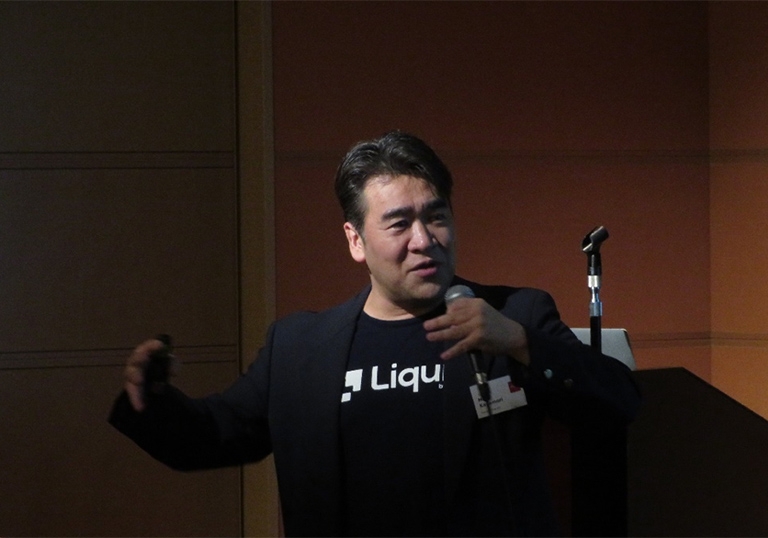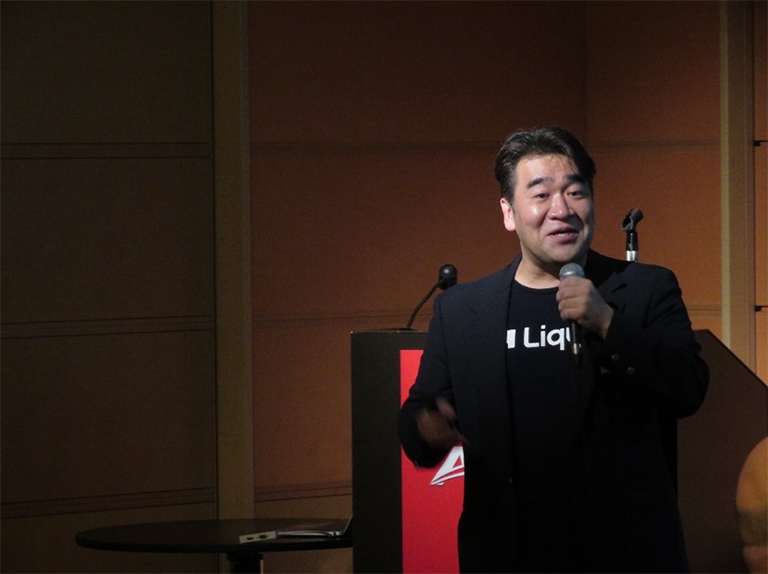For Kayamori, the possibility of promoting financial inclusion, where anybody with a smartphone would have the ability to make financial transactions, was what led him to co-founding Liquid.
Speaking at a recent event hosted by the American Chamber of Commerce Japan (ACCJ) Alternative Investments Committee, Kayamori said that in many developing countries, he saw that only a minority of the population have a bank account. At the same time, both smartphone sales and mobile internet services are expanding rapidly. Recognizing the need and potential for a global financial instrument that has practical application in both developing and developed countries, he shifted careers and co-founded Liquid in 2014. The company has since grown to eight offices worldwide and now handles approximately $9-11 billion in monthly volume transactions across the globe.
According to Kayamori, Japan’s role in this new market is solid and thorough. Japan was the first country to adopt cryptocurrency government regulations with legislation passed in 2017. According to Reuters, the Japanese government is now pushing for an international cryptocurrency payment system similar to the SWIFT network to “ensure the security of virtual currencies, hoping to leverage the fintech industry to stimulate growth.”
Kayamori said that when he initially established Liquid, he perceived cryptocurrencies to be a “small subset within the foreign exchange industry,” largely due to the fact that Bitcoin was the only currency available. But today, he noted, there are thousands of cryptocurrencies available and that cryptocurrencies “cut across the financial ecosystem.” Additionally, he addressed the evolution of cryptocurrency from something that had a slightly fringe reputation in the financial world to becoming a mainstream asset class.

The universality, accessibility, and fast transactional speeds of cryptocurrencies help enable access to capital, which leads to what Kayamori calls the “democratization of finance.” Drawing on his experiences in developing countries, he believes that there is a strong potential for cryptocurrency to catch on as a financial instrument worldwide.
He said that he has fielded interest from people in numerous countries in investing in cryptocurrencies. In addition to its application as an investment vehicle, Kayamori sees great promise in cryptocurrencies addressing issues such as poverty by being used as a payment channel directly between seller and consumer as well as for micropayments in developing countries.
Running a global cryptocurrency exchange in a nascent market and ensuring that his company is compliant can be taxing, but Kayamori sees enough upside to keep going.
Kayamori said he has plans to continue growing the company’s presence worldwide and to become a financial group offering broker-dealer, virtual currency licensing, and possibly custodial services to clients. Millennials, who compose nearly 70% of his active customers, serve as a source of motivation for him. He commented: “I believe this is something of a cause where it is the future, when everything is becoming digital… (millennials) don’t do equities anymore, they don’t do 401(k) (retirement plans), they don’t do options... with a smartphone, they can buy and sell Bitcoin.”

